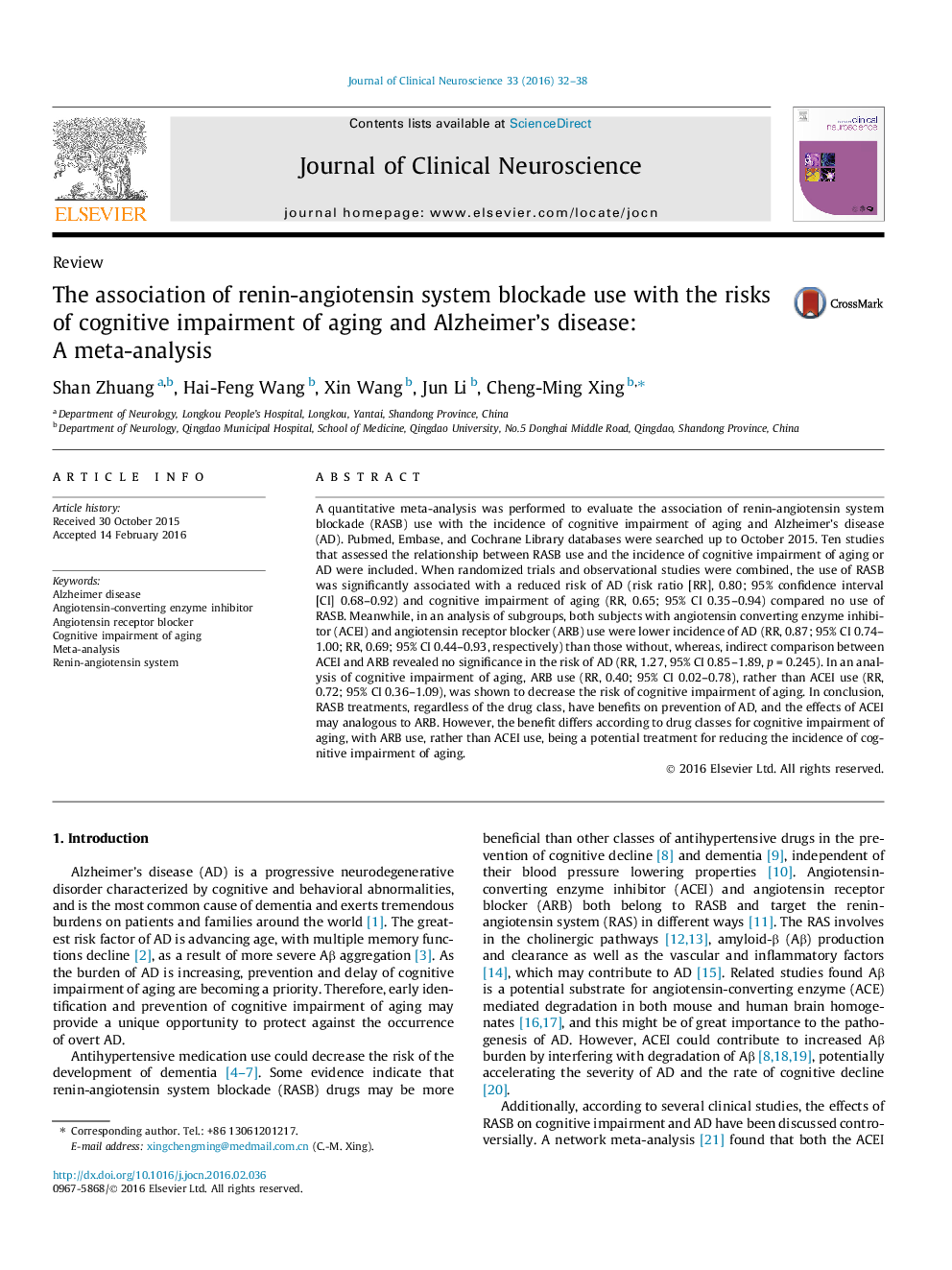| کد مقاله | کد نشریه | سال انتشار | مقاله انگلیسی | نسخه تمام متن |
|---|---|---|---|---|
| 5630004 | 1580283 | 2016 | 7 صفحه PDF | دانلود رایگان |
- RASB may play a protective role in the risk of cognitive impairment of aging and AD.
- Both ACEI and ARB have benefits on prevention of AD.
- ARB use, rather than ACEI use, could decrease the cognitive impairment of aging risk.
- The comparison between ACEI and ARB revealed no significance in incident AD.
- PACEI use, rather than CACEI use, could prevent the incidence of AD.
A quantitative meta-analysis was performed to evaluate the association of renin-angiotensin system blockade (RASB) use with the incidence of cognitive impairment of aging and Alzheimer's disease (AD). Pubmed, Embase, and Cochrane Library databases were searched up to October 2015. Ten studies that assessed the relationship between RASB use and the incidence of cognitive impairment of aging or AD were included. When randomized trials and observational studies were combined, the use of RASB was significantly associated with a reduced risk of AD (risk ratio [RR], 0.80; 95% confidence interval [CI] 0.68-0.92) and cognitive impairment of aging (RR, 0.65; 95% CI 0.35-0.94) compared no use of RASB. Meanwhile, in an analysis of subgroups, both subjects with angiotensin converting enzyme inhibitor (ACEI) and angiotensin receptor blocker (ARB) use were lower incidence of AD (RR, 0.87; 95% CI 0.74-1.00; RR, 0.69; 95% CI 0.44-0.93, respectively) than those without, whereas, indirect comparison between ACEI and ARB revealed no significance in the risk of AD (RR, 1.27, 95% CI 0.85-1.89, p = 0.245). In an analysis of cognitive impairment of aging, ARB use (RR, 0.40; 95% CI 0.02-0.78), rather than ACEI use (RR, 0.72; 95% CI 0.36-1.09), was shown to decrease the risk of cognitive impairment of aging. In conclusion, RASB treatments, regardless of the drug class, have benefits on prevention of AD, and the effects of ACEI may analogous to ARB. However, the benefit differs according to drug classes for cognitive impairment of aging, with ARB use, rather than ACEI use, being a potential treatment for reducing the incidence of cognitive impairment of aging.
Journal: Journal of Clinical Neuroscience - Volume 33, November 2016, Pages 32-38
